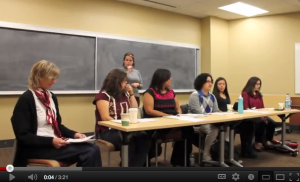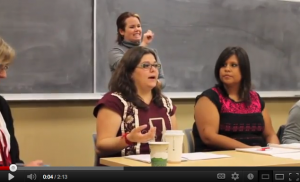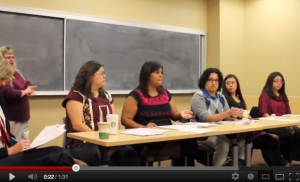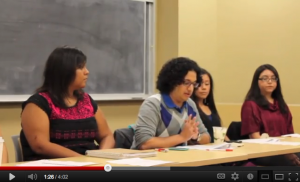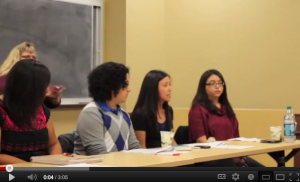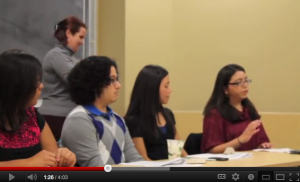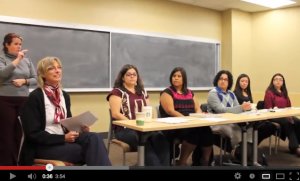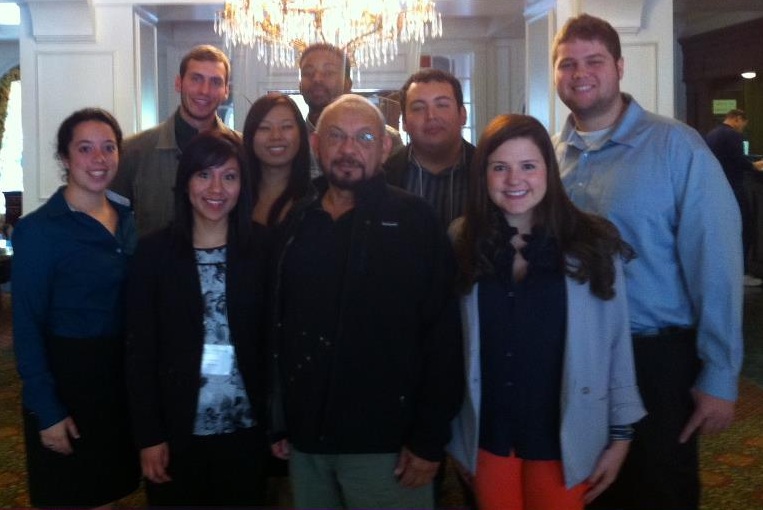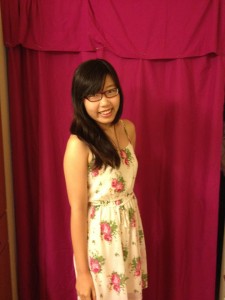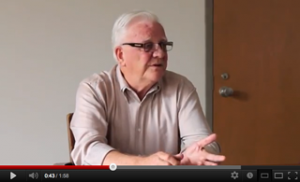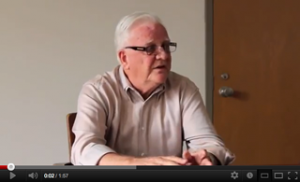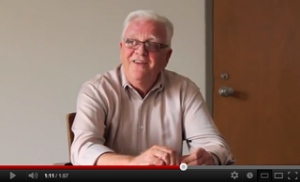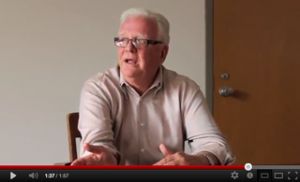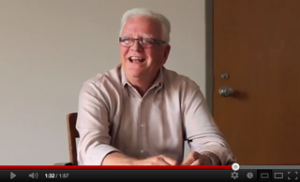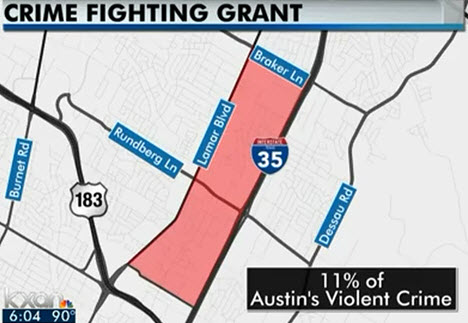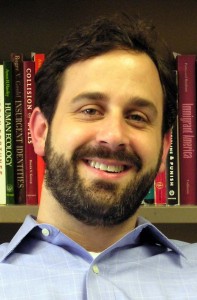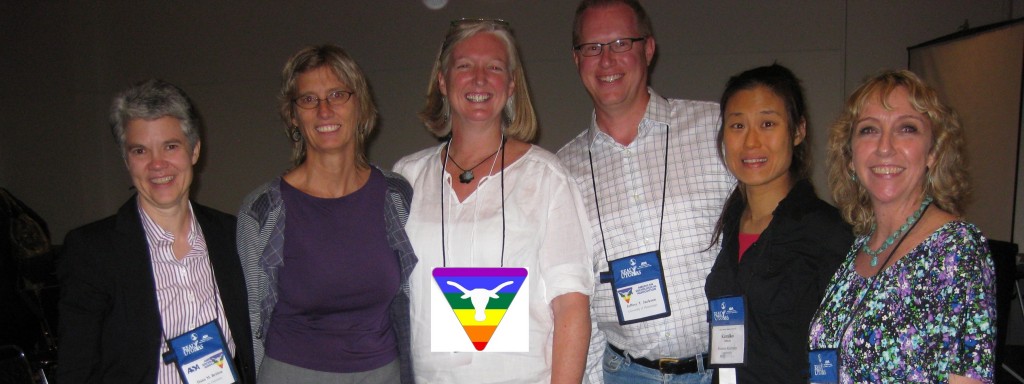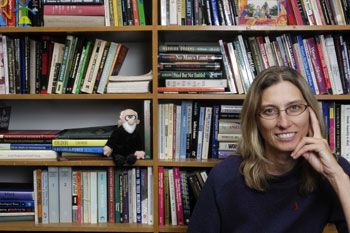 Here at the UT Sociology Blog, we strive to find new and interesting ways to expose the people and research in our department. To that end, we present to you “Better Know A Sociologist,” where we ask 10 general questions to one of our illustrious faculty members. Given that this is our inaugural post, we thought, “why not start at the top?” Thus we present to you 10 questions with Dr. Christine Williams, chair of the UT Sociology Department.
Here at the UT Sociology Blog, we strive to find new and interesting ways to expose the people and research in our department. To that end, we present to you “Better Know A Sociologist,” where we ask 10 general questions to one of our illustrious faculty members. Given that this is our inaugural post, we thought, “why not start at the top?” Thus we present to you 10 questions with Dr. Christine Williams, chair of the UT Sociology Department.
1. What first attracted you to sociology?
I don’t know how I first got interested in sociology. I’d always developed this narrative that I discovered sociology in college after going through different majors like political economy and art history. But then, somebody – I think my sister -pulled out my high school yearbook – I went to a pretty small high school in South America, so each senior had their own page and their own quote – and in my quote, I talk about wanting to be a sociologist! So I was 16 years old when I graduated from high school so obviously I knew what it was and I said I wanted to be one, so who knows? I don’t know where that came from in my 16 year old self, but I do remember actually making the switch to being a sociology major and I think it had a lot to do with the fact that it was the place where I learned about social justice and social inequality and that’s where feminism was located in the academy, so I think that that’s what drew me to the major. I’ve always been interested in class and gender.
2. What did you do your dissertation on?
My dissertation was a study of men in nursing and women in the Marine Corps. It was published as the book “Gender Differences at Work.” There’s this book by Rosabeth Moss Kanter that’s very famous called “Men and Women of the Corporation.” It’s a bit old, but people still talk about it. Kanter says in the book that it’s all about being a numerical minority, that is, the token phenomenon that results in basically labor force discrimination. I thought I would compare men’s and women’s experiences as tokens, but my original case study design was women in the Marine Corps and men in ballet because I had this title in my mind : “Men and Women of the Corps.” Like the Corps de Ballet and the Marine Corps, and I thought it would be this great hook because it was ultimately a critique of Kanter but I went to talk to an adviser in anthropology – who ended up not being one of my advisers – but he said that it was a stupid comparison and I got all, “Waaah, no!” I eventually figured out that he was right, but he was way too gruff in his manner and so I changed my case to nursing.
And so doing those studies, was that sort of what got you thinking towards doing the research that would eventually result in “Still A Man’s World”?
Yeah, after I had published “Gender Differences at Work,” one of my reviewers – it was actually Arlene Kaplan Daniels, who recently passed away. She mentored the whole generation of scholars that are my age. She was really really important and is missed – she gave it a very positive review and said that she was especially interested in the case of men because sociologists of gender have basically ignored men up until then and that the case of men in nursing was just fascinating and new and so that’s when I decided to expand my second book to look at more than one occupation that was female dominated.
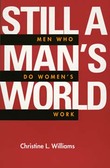
3. Why did you decide to work here at the University of Texas?
Because they offered me a job! [laughs] Nobody picks where they work, this is where you end up. It was very funny because my first job was at the University of Oklahoma and that’s where I was an undergraduate. I was two years into being there and I was pretty miserable. I was the token qualitative person and the token theory person and it was just miserable, so I went back on the job market and applied everywhere. I almost didn’t apply here because I thought, “Oh UT, that’s going to be exactly the same as Oklahoma and I just want to get out of this part of the world.” But I came down here for my interview and I was just blown away. It was pretty and it had hills and people were really nice and excited about my work. I had just come from an environment where as an assistant professor I was constantly being criticized. Here everyone thought I was great and I thought they were great so it was a good match.
So when you got here, did you see this as a place you wanted to stay, or did you see this as just another part of your journey?
I had my career ups and downs here. I was pretty unhappy at one point because I thought they would count my two years [at OU] towards tenure and they didn’t – they would do such a thing now, but back then they had more stringent rules about time and rank – so they didn’t let me go up early and I was pretty unhappy about that and threatened to leave but never did. You know, I’ve been here for almost 25 years and I can’t – I often think about where I’d rather be other than here and I can’t think of any place. I can’t think of any place that would be as good as this. Of course I have this great lifestyle where I go away in the summer and get to live in the Bay area, so that kind of gives me the best of both worlds.
Definitely. Avoid the Texas summers if you can.
I know! But I still get to have the big ranch house and an easy bike commute and fantastic students and a great department.
4. What’s your overall experience of Austin then? What do you like about this place?
I like that it’s very relaxed and informal, although I understand that’s less so these days downtown. I just don’t go there. I think I, like a lot of people, live in a very small part of Austin. I basically live in a three mile radius of my home and I think it’s great. I don’t know what you’d want more than this. Of course, I spent a lot of my childhood traveling, so having a place that where I’m actually going to live for a long time is something attractive and very different for me.
5. If you could teach one sociological concept to the world, what would it be?
Mmm. Well it wouldn’t be the glass escalator, because I already did that and now I’m backtracking on that. There are flash cards with the glass escalator, it’s in hundreds of textbooks: kids all over the country are being given multiple choice questions on “what is the glass escalator?” So it’s happened.
So talk about that. It sounds like you’re a bit conflicted. How do you feel about having that sort of legacy or this concept that you created out in the world and you don’t really have as much ownership over how it’s being discussed and taught?
Well, it’s a good feeling. You know, I didn’t actually invent the term, [my partner] did. [laughs] I was sitting there working on the article because I had published two books already and my senior colleagues told me that if I wanted to get tenure at Texas I had to publish articles too. So I was working on this article that became the glass escalator article and I was looking at my analysis and saying “It’s like these guys keep on getting moved up even though they don’t even necessarily want to move up. It’s like they’re on some kind of elevator or something!” And he goes, “no, it’s an escalator, because they have to work to stay in place.” And I said, “That’s it!” I remember it very vividly, that conversation. So it’s very gratifying to know that – and I think it’s a good concept because people know intuitively what it means because it has a counterpart with the glass ceiling, and I do think that’s partially the secret to success is to come up with some catchy term. I mean, Arlie Hochschild really refined that with “the second shift” and “the time bind.” She keeps coming up with these great – like “the global care chain,” that’s another one.
Or emotion work.
Emotion work! I mean, all of these ideas, people can intuitively grasp what they’re about and it’s very cool. No, I’m backing away from it not because I think I was wrong but because I think that the world of work has changed so that there are many, many careers today that have no career ladder. You can’t have a glass escalator unless there is the opportunity for promotion. I think it’s a concept that’s grounded in an earlier form of work and we need new concepts.
It’s almost like a treadmill now.
Yeah, or a trap door is another one that we’re thinking about. So we’re thinking about the limitations of the glass escalator concept and we’ve got an article forthcoming in Gender & Society next year.
6. What’s the most rewarding part of your job?
This. Graduate students. Talking about ideas.
Why is that?
What other field do you get to be around a bunch of brilliant young people who are basically creatively thinking about society? There’s nothing else that comes close to it.
7. Who is one person in the department besides yourself that you think is doing really interesting work and what is it?
Well, it’s really funny, most of us don’t know what each other does, and I do because I’m chair. The thing that just boggles my mind is how much amazing work is being done here. When you asked that question, I was like, “Holy cow, what am I going to say?” I mean, is it going to be Sharmila’s [Rudrappa] work on surrogacy, Deborah’s [Umberson] work on gay marriage, Ron’s [Angel] work on post Katrina… It’s just endless. My colleagues over in the Population Research Center are also doing really interesting and innovative work, so I couldn’t pick. I mean, Michael Young’s work on immigrant rights, Ari’s [Adut] work on the French Revolution – I get to read all of this stuff – Gloria’s [Gonzalez-Lopez] work on incest, it just goes on and on.
It’s an embarrassment of riches.
It is, and it helps us to understand why we’re so highly ranked but it also has to do with our ability to interact with and mentor excellent students. Just having that intellectual stimulation – we didn’t always used to have that here and I think it’s something that we’ve cultivated and grown. Virtually everyone in the department is doing interesting work now. I mean, Joe Potter’s work on contraceptive health and health policy, it’s just, it’s first-rate and it’s so interesting.
8. What are your current research interests? What are you looking at these days?
Well, the short answer is women geoscientists in the oil and gas industry, but I think my heart lies in understanding work transformation and deindustrialization. What’s really interesting to me is how a lot of policies meant to promote gender equality have been designed with professional women in mind and I think that policies that aid them may actually diminish poor women. So I think there’s a real need to understand how social policies have a class basis to them. Especially poor women, but also men, because a lot of the time they’ll say, “OK, there’s a gender wage gap”. Yeah, she’s earning $7.50/hr, he’s earning $7.80/hr, so both of them are struggling, OK? It’s like it’s almost the wrong issue. And the focus sometimes on gender disparities at the bottom of the wage scale I think prevents worker solidarity. This is the stuff that I’ve been teaching to you since I first met you, sort of combining the gender and sexuality with the labor markets.
Exactly. And sort of the effect of neoliberalism towards putting men and women in a race to the bottom in terms of wages.
Right. And we can still detect gender disparities but are they the issue when people are not earning living wage? No, they’re not. On the high end, it’s “OK we’re going to get women into the CEO suite,” but it’s going be a pyrrhic victory if they’re just going to continue to impose these neoliberal reforms and slash any kind of benefits and wages. No thank you! That’s not my feminist movement.
9. What’s one book you’ve read in the past year that you’ve really enjoyed and why?
Well, the book I’m reading now is just amazing. It’s Sinikka Elliott’s book – which was her dissertation here at UT – and I’ve assigned it to my undergraduates. There’s just so many wonderful feelings involved in seeing this work from its inception. It’s called “Not My Kid,” and it’s about what parents believe about the sex lives of their teenagers. They all think that their kids are good and innocent and other people’s kids are hormone driven sex maniacs and this belief, she argues, reproduces social inequality but it also prevents teenagers from getting any kind of thoughtful, useful information about sexuality and relationships.
10. What do you enjoy doing in your free time?
I enjoy bike riding and reading. Especially novels. I also enjoying swimming and yoga and drinking beer.
